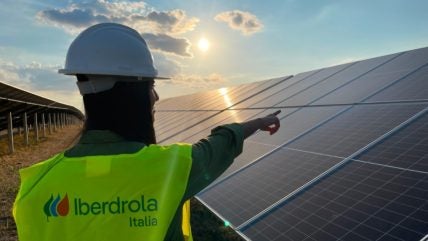
Spanish energy company Iberdrola has selected German engineering company IB Vogt to construct the 245MW Fenix solar project in Italy.
Already one of the largest photovoltaic installations in the country, the project has the potential to expand by an additional 60MW, reaching 305MW.
The commencement of the Fenix project is scheduled for March 2024. It will be equipped with 424,638 photovoltaic modules.
It is projected to produce 400GWh of clean energy annually and will prevent the release of 119,000 tonnes of carbon dioxide emissions annually into the atmosphere.
The project will generate enough energy to meet the requirements of 140,000 households.
Its construction phase will generate 500 local jobs and the operational phase will create 100 permanent positions.
Iberdrola Renewables Italy country manager Valerio Faccenda stated: “This is a further step in Iberdrola’s growth in Italy.
“The company has undoubtedly laid a solid foundation to achieve the 2030 and 2035 targets, with a 100% renewable portfolio of more than 115 wind, photovoltaic and storage projects in advanced stages of development with a total capacity of 5GW.”
The project will be significant considering that Italy has only 60 plants with a capacity of more than 10MW. The average size of such projects is 26MW.
In January 2024, Iberdrola announced plans to install six battery energy storage systems (BESS) with a combined capacity of 150MW across regions of Spain including Castilla y León, Extremadura, Castilla La Mancha and Andalusia.
Each of the six batteries will have a power output of 25MW and a storage capacity of 50 megawatt-hours.
The projects are designed to facilitate the integration of renewable energy into the national grid.



